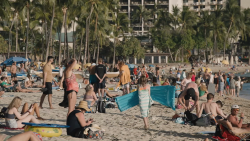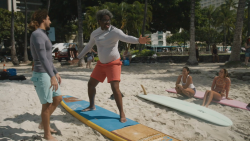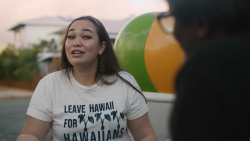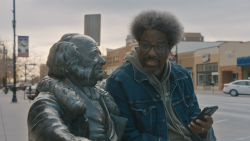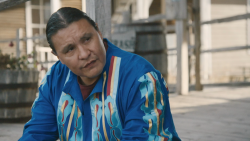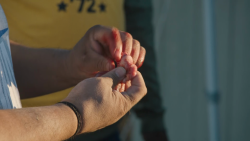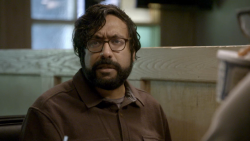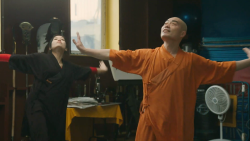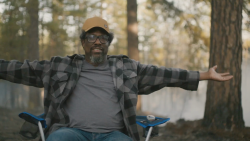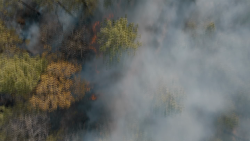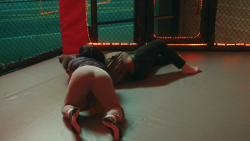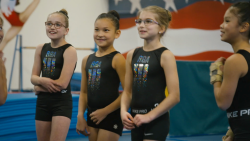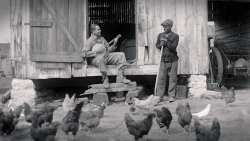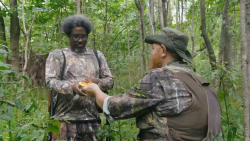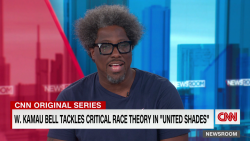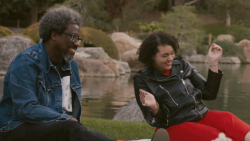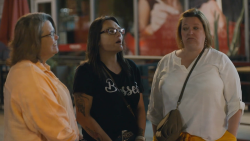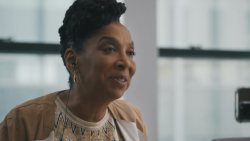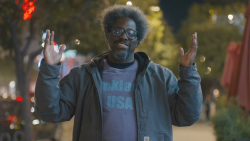Editor’s Note: W. Kamau Bell is a sociopolitical comedian and author who is the host and executive producer of the CNN Original Series “United Shades of America,” airing Sundays at 10 p.m. ET/PT. The views expressed here are his. Read more opinion on CNN.
After jumping into the deep end of policing in America, and then jumping into the deep end of America’s history of racism in STEM, “United Shades of America” is staying in the deep end this week by talking about the “Power of Protest.”
And if we’re going to talk about protest in 2021, we should probably head back to Portland, Oregon. I spent time in Portland in season one of “United Shades,” but when I returned to the city last fall there were way fewer hipster jokes and way more flak jackets.
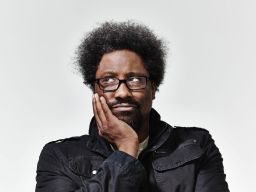
Just kidding. The only protection I had when I protested racial injustice with the civil rights collective Black Unity PDX was a mask to protect me from Covid-19.
This protest was only possible because of the First Amendment of the Constitution of the United States. You might remember that document: It was based in part on the Iroquois Confederacy, one of the many things in “American culture” that we took from the many Indigenous cultures of this land.
While many people like to focus on the Second Amendment of the Constitution, I think it is important at this moment in history to reread that First Amendment. (It must be pretty good since it is the first one.) Here it is:
The First Amendment is a mic drop — a mic drop that tells you that you are allowed to pick up a mic (or back then, one of those triangle cone things … a megaphone?) and use your voice when you see a grievance that needs some redressing. That is why protesting is legal. And protecting our right to protest is the main thing that keeps a whiff of democracy in this country’s air.
And let’s be clear, protesting and activism work. Our two main ways to make this country live up to its alleged ideals and myths are in the courtroom and in the streets. But the streets may be most important, because too often your grievance may never be legally redressed without protest.
Just look at the three guilty verdicts in the Derek Chauvin case. Does Chauvin get arrested or even reprimanded without the activism of Darnella Frazier, who filmed the murder and shared it with the world? Does Chauvin suffer any consequences if people all over the country don’t run to the streets and ignite an international protest movement?
My answer is no. I believe Chauvin would still have his job and be abusing his power the same way he did before he murdered George Floyd, if not for the power of protest.
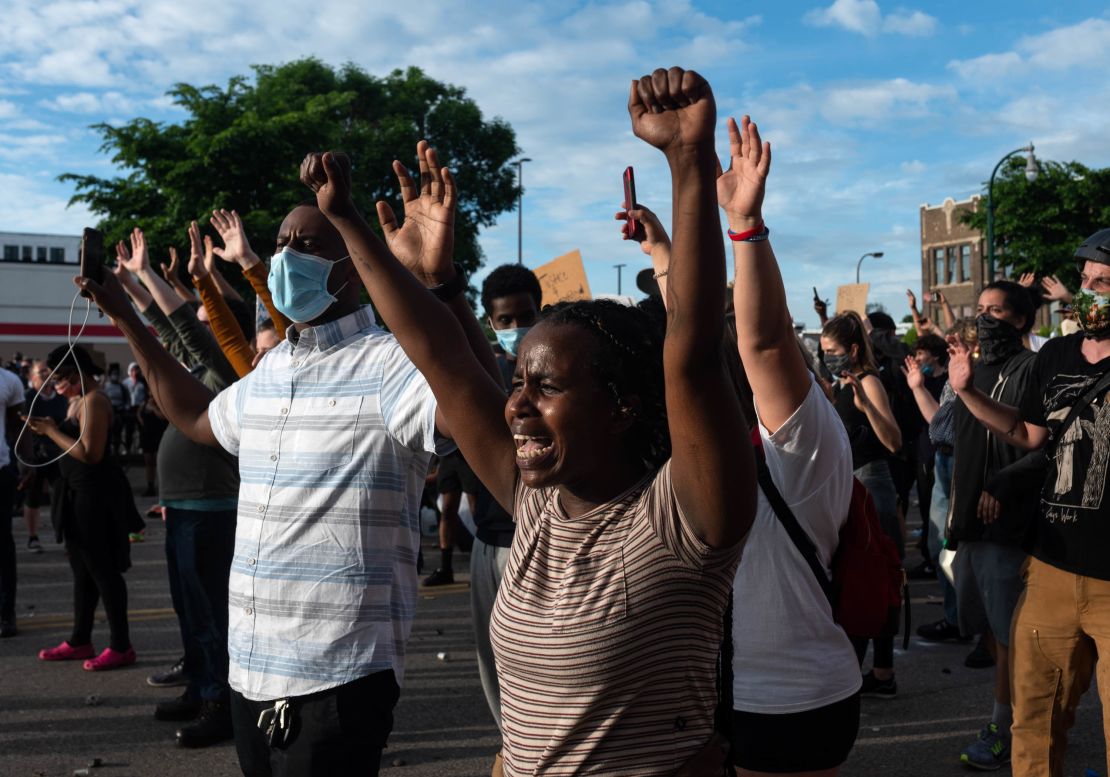
Like it or not, protesting is how the American sausage gets made, and making sausage is a dirty and messy business. It involves grinding parts down. It can be spicy. And it ain’t always pretty to watch. In the last year, Portland has become the epicenter of that process. Despite the fact that Portland is a bright blue electoral dot, it is in a state that has some of the deepest red (and Whitest Whites) in the country.
Remember that weird land rights’ case about cattle grazing that was followed by a bunch of Bundys seizing a government building in an armed standoff? Remember how mind-boggling that all sounded, and how it was made even more mind-boggling by the fact that no Bundy suffered any major consequences? That was Oregon. I guess even that protest worked. But not all protests are created equally.
Even though this country wouldn’t exist without protest (Boston Tea Party, anybody?), right now there are forces at work to strip certain people of their rights to protest. You get one guess as to who the forces are and what kind of people are being targeted. I’ll give you a hint: The first group often has the initials GOP and many people in the second group are associated with the initials BLM.
The right wing didn’t just pick up this hobby of targeting protesters in 2020. In 2016, Native activists from all over America assembled at the Standing Rock Reservation in North Dakota and focused the world’s attention on the Dakota Access Pipeline project, and how its construction would not only contaminate the water but also violate Native land rights. In response, legislators in North Dakota introduced a bill that literally targeted protestors, proposing legal protection for people in cars who “unintentionally” hit or run over activists when their protests blocked traffic. At the time, the bill’s co-sponsor, Rep. Keith Kempenich, framed it as the drivers’ “lawful, legal exercise of their right to drive down the road.” I can’t remember exactly which amendment to the Constitution guarantees the right to run over people in your horse and buggy. (And apparently a majority of North Dakota legislators couldn’t either — the bill didn’t pass.)
In the wake of 2020’s Black Lives Matter protests, many states are considering anti-protest laws. The International Center for Not-For-Profit Law, a non-profit that tracks protest legislation in the US, found that 32 states have enacted laws that could make it harder to protest.
I would say if there is even one law that restricts our right to protest, then we aren’t doing democracy the way it was intended.
And not doing democracy the way it was intended seemed like the mission statement of the Trump administration, which we saw in his reaction to Portland last year. Like many cities in 2020, Portland had weeks of mostly peaceful protests in the wake of George Floyd’s May 25th murder. But then President Trump seemed to think bright blue Portland was an important political chess piece, because in July he flooded the city with federal agents under the stated goal of protecting federal buildings. And since the Trump administration was obsessed with the US border, it used federal regulations that allowed them to send even elite Border Patrol agents into the city, because it borders the Pacific Ocean. There was so much military-style force in Portland that the news clips looked like an invasion.
The Portland protests, in photos
Among the many problems Trump’s directive posed to the people of Portland, one of the biggest ones was federal agents who didn’t wear badges. That meant the protesters who described being tear-gassed, shot at with rubber bullets, and yanked off the streets into unmarked vans had no idea who was doing it. I’m old enough to remember when we used to think those things were unacceptable in other countries, let alone the good ol’ US of A.
But knowing they could get snatched by secret police didn’t stop the people of Portland from protesting then. And red states — or red state legislators in blue states — creating anti-protest laws won’t stop people from protesting now. While I was in Portland, I met a variety of people who felt compelled to go out into the streets to fight an unjust system — and none of them mentioned checking the city statutes before they went out in the action. That included a 19-year-old Black college student named Xavier “Princess” Warner; Navy veteran Chris David; a couple of moms turned activist-moms named Demetria Hester and Nichol Denison; a hip-hop music journalist turned journalist-of-everything-going-wrong-in-Portland, Mac Smiff; and two Antifa protesters named … well, I don’t know their names, because that’s how Antifa rolls.
Get our free weekly newsletter
I also had an incredibly powerful conversation with three Native American activists who organize a weekly Sunrise ceremony at Portland’s Delta Park. Oregon state Rep. Tawna Sanchez is of Shoshone-Bannock, Ute, and Carrizo descent, Portland’s Tribal Relations Director Laura John is a descendent of the Blackfeet and Seneca Nations, and Jason Umtuch of the community organization Fires Igniting The Spirit is from the Warm Springs Tribe. And if anybody should be asked their opinions on what we should and should not do on this land, it should definitely be the Indigenous community.
As Frederick Douglass famously said, “Power concedes nothing without a demand.” And until power accepts demands worded like, “Please give us justice!” or, “If you wouldn’t mind not oppressing us, we’d sure appreciate it,” then protesting in ways that are loud, inconvenient, messy, damaging, and often beautiful is how Americans who believe in justice and joy will get those in power to act right.
We could avoid all this if we just lived up to our ideals. But until then, I’ll see you in those streets.


